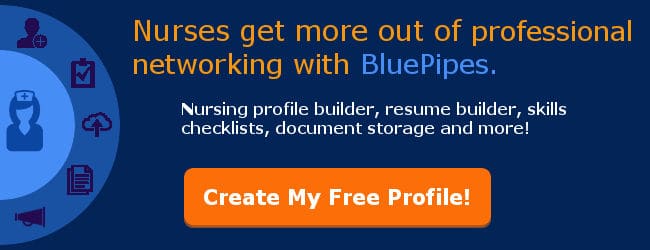5 Things that New Grad RNs and Experienced RNs Should Know About the Job Market
A New Grad RN recently shared their frustration with us regarding the difficulties they encountered while searching for their first job. Having spoken to many New Grad RNs over the years, we know how frustrating it can be for them to land their first job with an acute care hospital. These days, many people point to uncertainty surrounding the Affordable Care Act as the cause. However, our experience indicates that New Grad RNs have been having this difficulty since at least 2006. While the problem has certainly been magnified since 2008, we’re not sure how much of it can be attributed to the Affordable Care Act. The poor economy and an overall misunderstanding of the “nursing shortage” are more likely causes. Understanding the issues at play can help New Grad RNs formulate a strategy for landing their first job in an acute care hospital.
How the Economy Affects New Grad RNs
When the US economy is poor, patient populations decrease . This is because many people lose health coverage when they lose their jobs, and the general population tends to spend less on healthcare overall. To compound the problem for New Grad RNs, experienced RNs who may have otherwise left the workforce for retirement or other reasons make the decision to stay employed. Still others make the decision to work more hours in order to supplement family income.
Moreover, our country’s recent recession was so severe that it forced cuts to Medicare and Medicaid reimbursements at both the federal and state levels. As a result, hospitals are in the precarious position of providing many of the same services for less. This results in an overall aversion to hiring New Grad RNs due to the higher costs associated with training.
Interpreting the Nursing Shortage
In addition, the “nursing shortage” is often misunderstood to mean that there is an immediate shortage of nurses in all corners of the healthcare industry. This is not the case. First, there is regional variability with regard to the nursing shortage. In California for example, there is a surplus of nurses in more desirable areas like San Francisco and San Diego, and a shortage in less desirable areas like El Centro or Stockton. So as a New Grad RN, you may have better luck in less desirable areas.
BluePipes: Professional Networking and Career Management Tools for Healthcare Professionals
Second, when government statisticians and labor market experts discuss the “nursing shortage”, they’re often referring to an impending situation rather than the immediate state of affairs. For example, according to the American Nurses Association (ANA), the average age of employed RNs is 45.5 and 50% of all RNs are over the age of 50. In addition, the single largest age group of employed RNs is age 50-54. Couple these figures with an aging general population who will most certainly increase healthcare demand over the next 10-20 years, and you have a nursing shortage.
Third, the “nursing shortage” refers to more than just hospital nurses; it’s a reference to the entire RN labor market. According to the ANA, only 62% of all employed RNs work in an acute care hospital setting. While this figure certainly represents a solid majority, it also indicates a vast number of nursing jobs exist outside this setting.
Recommendations for New Grad RNs
Expand Your Sphere
Given these realities, we always offer three pieces of advice to New Grad RNs. First, expand your sphere. Second, engage in personal networking. Third, consider jobs outside the acute care hospital system. The reason for the first, expand your sphere, has already been covered. The “nursing shortage” is regional. If you can move somewhere for work, then you should strongly consider doing so.
Professional Networking for New Grad RNs
We’ve found the second, personal networking, to be highly successful. In fact, of all the New Grad RNs we know who have landed a job at an acute care hospital, we’d be hard pressed to name one that didn’t either have an internship at the hospital prior to landing the job, or have a personal relationship with someone at the hospital prior to landing the job. Now, it’s important in this day and age to distinguish between “personal networking” and “social networking.” The latter is what we engage in on sites like BluePipes, LinkedIn, Facebook, Google+, or Twitter. The former is good old-fashioned palm-pressing…face-time. Personal networking is the highest level of personal engagement and it has the greatest potential to lead to the New Grad’s desired outcome of getting hired at an acute care hospital.
We don’t mean to diminish the usefulness of social networking sites. In fact, social networking sites can be a useful tool in your personal networking efforts. For example, you can approach the social networking sites with the goal of landing an in-person informational interview with someone working at a hospital of interest. And social networking services like BluePipes offer healthcare professionals much more than just networking services.
There are other tools that you can utilize for personal networking as well. Volunteer at hospitals of interest, talk to everyone you know to see if they have any connections and ask for a referral, join career related associations and attend their meetings, etc. And remember, be at your best in all these endeavors with the belief that you are being evaluated as a potential job candidate at all times. The bottom line: In the hierarchy of effectiveness with respect to landing a job, face-time is king, followed by phone-talk-time, with social media serving as one of many tools to achieve those goals.
Consider Unconventional Settings as a New Grad RN
Finally, New Grad RNs should also consider jobs outside the acute care hospital setting. Acute care hospitals are the pinnacle of healthcare employment in this country. So in essence, as a New Grad RN, you’re essentially looking to start at the top. The job of an acute care hospital RN is very complex relative to many other RN jobs and therefore often requires much more training. Remember, when we talk about a “nursing shortage” we’re not just talking about acute care hospitals. We’re talking about Long Term Care facilities, Psychiatric Facilities, Nursing Homes, and a host of other settings.
We’ve seen many people argue that taking a job outside the acute care setting will type-cast you in the respective setting for your entire career. They contend, for example, that if you take a job in a Long Term Care facility, then you’ll never be able to get out and into an acute care hospital. We reject this notion. If you were a hiring manager, would you prefer to hire someone with absolutely no experience as an RN over someone who had participated in a code-blue, who was proficient in administering IVs, and/or who had experience administering a host of medications? In addition, being able to list this kind of experience on your resume could push it higher in the Applicant Tracking System rankings that are now prevalent throughout the industry.
Experience in a healthcare related setting can only improve your story. And your story can be extremely important in actually landing a job. Would you rather hire the person who didn’t work in a healthcare related capacity for the last year because they couldn’t find a job in an acute care hospital, or the person who spent the last year learning what it takes to care for patients in need? Who learned the importance of bed-side-manner? Who was so passionate about nursing that they wanted to learn more and care for patients? Who dealt with some of the most undesirable aspects of nursing and is still in the game, pressing forward? Better yet, which story would you prefer to tell a hiring manager?
Finally, it’s important to ensure that you’re getting the most out of your resume. We highly recommend reviewing our Top 10 Details to Include on a Nurse Resume as well as our suggestions for optimizing your resume for applicant tracking systems. Following these guidelines will help to ensure that your resume is a successful component of your job search process.
We understand the frustration involved with landing that first job. It was difficult to land our first jobs out of college as well. We also speak with a lot of New Grad RNs and we sense the desperation in their voices. However, you’ve made a great choice to get into nursing. It’s a field with tons of potential. Admittedly, landing that first job isn’t as easy as widely advertised. However, it’ll come if you press forward with a solid strategy.





I agree!!!
We are seeing the same thing in Nashville, Tn. The nursing field is so saturated here … the starting pay is disgraceful and the working conditions are horrible. It is false advertisement and deceitful. Many cannot pay our loans back because cannot find work that pays the promised salary. Some take jobs even though they are asked to work under “shady” management and risk losing their license. When there are single mom/nurses trying to feed their families, chances are taken with a price of unintentional harm to patients unfortunately. Biggest problem is too many patients to nurse ratio especially during night shift when something always seems to happen. Just unsafe.
I spent 15 years of my life working as a CNA, I finally raised enough money to get my ADN. I cannot get a job as a RN and now no one will hire me for any tech jobs. I have EKG, but no way will anyone hire me as a monitor tech. Here I sit, fighting to make a penny as a mail carrier. The healthcare field has turn their back on me. I have given to this profession til it hurts and nothing to show for it. I advise not to choose nursing, this field does not show any loyalty for those who sacrifice and work hard.
Have you tried other areas of the country?
Foreigners and people who know a nurse manager are the preference for RN jobs. Foreigners since they have multiple years of experience as a RN in their home country so they are never considered new grad RNs and have a BSN. Most are on a lower pay scale because they don’t count 50% to 100% of their experience. EKG no one is hiring and I don’t think that job is ever coming back because of technology.